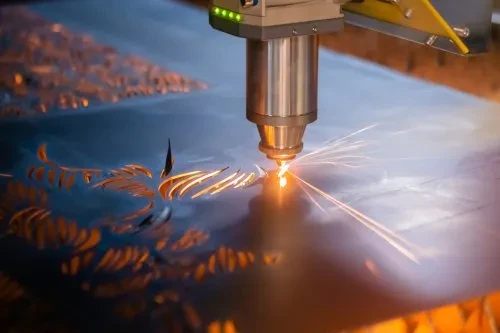Error de formato de correo electrónico
emailCannotEmpty
emailDoesExist
pwdLetterLimtTip
inconsistentPwd
pwdLetterLimtTip
inconsistentPwd

Noticias
What Are the Characteristics of Down Milling and Up Milling?
The milling direction of the milling cutter is often involved in the working process of the CNC milling machine, because even if the milling directions along the inner and outer contours of the workpiece are the same, the definition of its milling method is different. Their milling feature is very easy. Today we will talk to you: What are the characteristics of down milling and up milling in the milling process of CNC milling machine?

What is the definition of down milling and up milling?
When the cutting speed direction of the tool is the same as the moving direction of the workpiece, it is called climb milling.
When the cutting speed direction of the tool is opposite to the moving direction of the workpiece, it is called up-cut milling.
What are the characteristics of down milling?
The cutting thickness is from the maximum to 0, the tool life is long, the quality of the machined surface is good, and the vertical downward milling force is generated, which is helpful for the positioning and clamping of the workpiece, but it is not possible to mill the workpiece with hard skin, when the table feeds When there is a gap in the screw nut mechanism, the table may move.
What are the characteristics of up milling?
The cutting thickness is from 0 to the maximum, the service life of the tool is low, the quality of the machined surface is poor, and the vertical upward milling force is generated, which tends to provoke the workpiece to damage the positioning, but it can mill the workpiece with hard skin, when the worktable feeds the wire When there is a gap in the rod nut mechanism, the table will not move.
What are the applicable occasions for the two milling methods?
When the workpiece surface has hard skin or the machine tool feed mechanism has clearance, up-cut milling is used. Only when the machine tool feed mechanism has no clearance and the workpiece surface has no hard skin, down-cut milling is used.
Why choose CNC milling?
It has strong adaptability and flexibility for parts processing, and can process parts with particularly complex contours or difficult to control dimensions, such as mold parts, shell parts, etc.
It can process parts that cannot be processed by ordinary machine tools or are difficult to process, such as complex curved parts described by mathematical models and three-dimensional space surface parts. It can process parts that need to be processed in multiple processes after one clamping and positioning, such as drilling, reaming, reaming, boring, tapping, milling end face, milling end face, etc. Multi-process processing such as grooving. High machining precision, stable and reliable machining quality.
The production automation program is high, which can reduce the labor intensity of the operator. Conducive to production management automation.
high productivity. Generally, work such as marking and intermediate inspection can be omitted, complex tooling can be omitted, and the installation and adjustment of parts can be reduced. By selecting the best process line and cutting amount, the auxiliary time in processing can be effectively reduced, thereby improving production efficiency.
In terms of cutting principle, both end milling and circumferential milling are intermittent cutting methods, rather than continuous cutting like turning, so the requirements for tools are higher, and they have good impact resistance, toughness and wear resistance. In dry cutting conditions, good red hardness is also required.
Conclusion
For more information about 11 axis cnc milling machine,best cnc metal milling machine,milling machine 4 axis, we are glad to answer for you.

